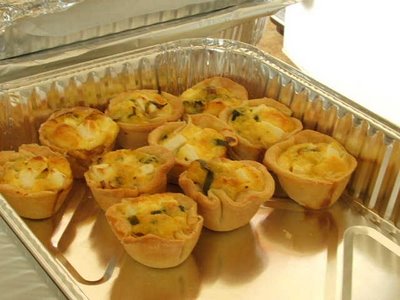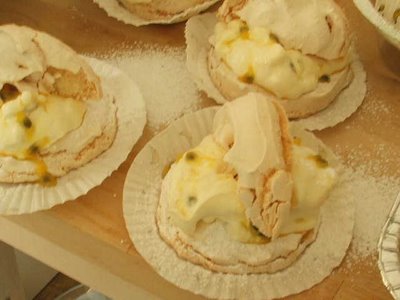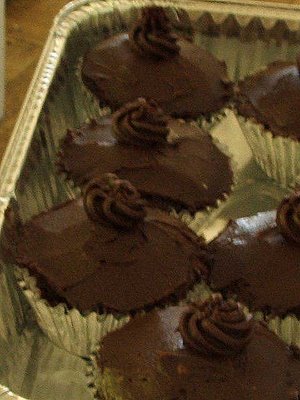One of the biggest frustrations I have with my new brother-in-law (BiL) is his conviction that while families may squabble, at the end of the day, when the chips are down, we’re all there for one another, through good times and bad. Perhaps it is not so much his adherence to this sentiment that bothers me—for if it is an ideal that any group of people can achieve, then that is surely a good thing—but that with his belief comes a refusal to countenance alternative narratives, ones where members of families do nothing while others endure difficult times, where they actively walk in the opposite direction, pausing only to enjoy the spectacle of the other’s suffering before they leave, or even to add to the pain. BiL’s refusal to even contemplate the fissures of human interaction, especially those which he knows run through his new wife’s family, feels to me like a kind of violence all over again. And it is one that will not dissipate no matter that BiL’s sister declared us a ‘close family’ in a post-wedding speech. (You should have seen the look on my other sister’s face when that corker hit the ceiling of the reception centre!)
In response to this casual re-narrativising of my family’s history, I’ll admit to being consumed by a level of rage that leaves sanity well behind. My reaction is corrosive. Principally, I think my response arises because declarations of familial unity are usually followed by the expectation of a demonstration of such unity. So, when BiL declares that ‘She’s your mother’, like some cure-all salvo after which everyone will embrace, I am infuriated. On one level, there’s the frustration that I’m speaking to someone who hasn’t really listened, accompanied by the suspicion that he just can’t comprehend the extent to which the lack of nurture has obliterated nature as any basis for a loving relationship.

I’m aware that there’s nothing I can do about BiL’s listening skills, there’s no point expending any further energy by fruitlessly explaining the basis of my antipathy towards my mother. And on the question of his lack of comprehension, I think I have to recognise that there are greater stories in the culture than mine which mitigate against the possibility of any easy acceptance that mothers can be abusive. It’s
Julia Kristeva in
Stabat Mater who reminds us that in Christian societies, which make up the West, the prevailing model for motherhood is the Virgin Mary. Every mother is bound to be a failure in comparison to this sexless paragon, and that is a feminist issue, but Holy Mary, Mother of God, also renders the existence of the abusive mother unthinkable. To even contemplate a mother that touches her child only to strike her or taunt her is the stuff of horror films; to admit that someone you know is an abusive mother would surely pitch your world view. From this perspective BiL’s determination to preserve his equilibrium can be viewed as a matter of personal survival, and that I understand.
One of the most significant consequences, for me, of BiL’s determined approach to family harmony, however, is that it has empowered my mother to demand exchanges of affection at family gatherings. She had been emboldened previously on occasions with my other brother-in-law’s family. While J. himself is not particularly demonstrative, whenever I greeted his father and mother they would pull me into a body-length contact that, after a life-time of little physical affection, I found quite confronting. Amidst all of the greeting and farewelling, my mother would take the opportunity to draw me into a hug and a kiss on the cheek, which I did not demur in an attempt to avoid any embarrassment to her and, if I’m truthful, any perception of churlishness on my part. Before V. and P. met, I think my mother’s confidence had waned on this issue, but perhaps that had more to do with my decision not to go to any gathering at which she was in attendance. After Hannah was born—not too long before V. and P. got together—maintaining any distance from family occasions became less tenable. I wanted to see Hannah grow up, so I began to attend Christmases and birthday barbeques and picnics. I love to hug Hannah, we have a special squeeze that we do, but I always ask her before we embrace if it’s okay, because surely there is no-one whose personal space is more infringed upon at family gatherings than her’s.
Over the past couple of weeks, I have been reminded of a realisation I had once when I was sitting next to my mother on a bus. Her thigh was resting against mine and I became aware that the contact with her was making me physically ill. I moved away from her, recognising the connection between her physical proximity and my experiences of being hurt and belittled. Even now as I write, the thought of her touch, especially the movement of her hands with those sharp, dancing nails, provokes a visceral response, a queasiness that I can feel, a constant movement between my solar plexus and my throat. It is these feelings which are aroused every time my mother touches me, even when she gestures while she talks I am reminded that for so long she thought her and others’ treatment of me was appropriate and deserved.
My visiting Uncle, who insists we call him ‘H’, has also been somewhat nonplussed by my mother’s demonstrativeness. I have discovered he is a diplomat, and so he jokes with my mother, on every arrival and departure, ‘Have we got to do this again?’. He and my Aunt (S.) have entered into the ritual, but noted that it’s not something they normally do, and certainly not without any pre-existing affectionate relationship. The importance of this last point seems to have been missed by BiL’s and J.’s family, while my mother and even my sister V. now seem to interpret any unwillingness to participate in this group hugging as irrefutable evidence of a lack of family togetherness. Well, the fact that I don’t want to hug my mother
is evidence of a lack of togetherness, but it won’t be solved—if it ever can be—with insincere expressions on my part. And I love my sister, V., as much as I ever did before all this ridiculousness started. How does the hugging thesis account for my undemonstrative Aunt and Uncle’s 30+ year marriage?
Tomorrow is my mother’s birthday and the last day of H and S’s time in Brisbane. We are all going to a high tea where I will not hug my mother, where I will squeeze Hannah (permission pending), where I will likely press my cheek to my sister F.’s, and where I will exchange an affectionate hug with both H and S because I’ve enjoyed meeting them and have found them to be lovely, thoughtful and generous people.
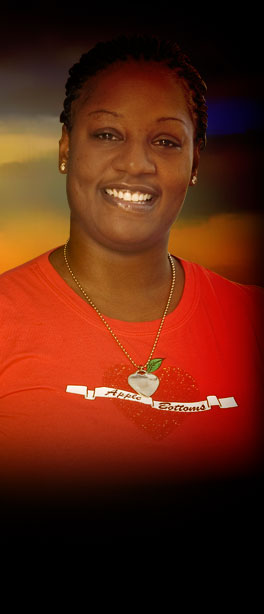


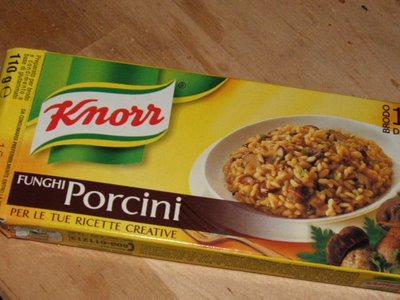

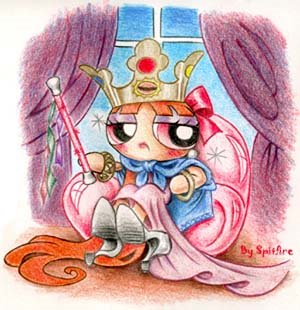


 One of the joys of having a brother who's a chef. He made this for breakfast the day after the wedding. I took the photo before a balsamic reduction was drizzled around the plate. Underneath the rocket salad is, from the bottom, sweet corn pancakes topped with slices of brie, bacon, and a perfectly poached egg. Around the side are oven roasted cherry tomatoes with thyme. Observe the surplus bridal chocolates in the background.
One of the joys of having a brother who's a chef. He made this for breakfast the day after the wedding. I took the photo before a balsamic reduction was drizzled around the plate. Underneath the rocket salad is, from the bottom, sweet corn pancakes topped with slices of brie, bacon, and a perfectly poached egg. Around the side are oven roasted cherry tomatoes with thyme. Observe the surplus bridal chocolates in the background.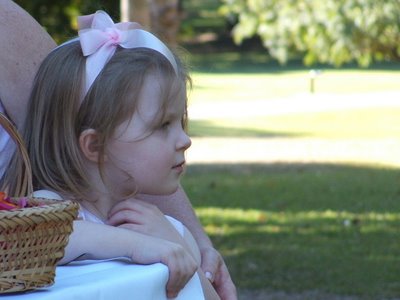 The Adorable Hannah
The Adorable Hannah
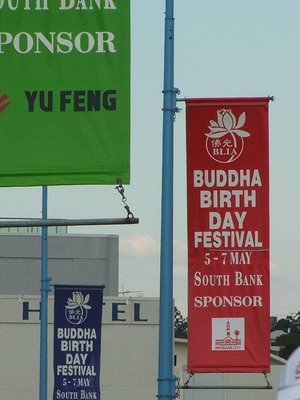


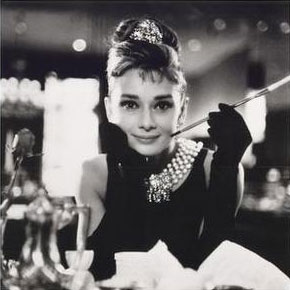 I was convinced that I shared her iconic beauty and grace, even if it was imperceptible to others. Philistines!
I was convinced that I shared her iconic beauty and grace, even if it was imperceptible to others. Philistines! 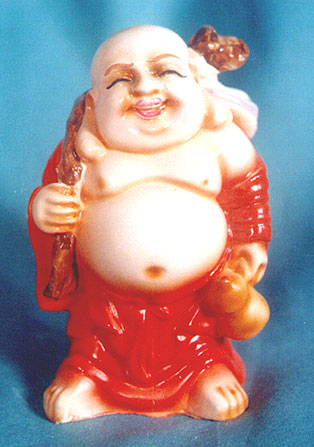 Oh, now you can identify the physical similarities? To the fat, laughing Buddha, you say?
Oh, now you can identify the physical similarities? To the fat, laughing Buddha, you say? 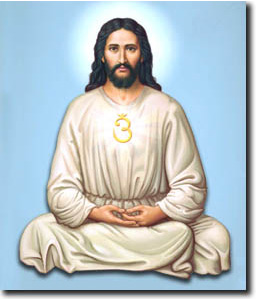 That’s two deities. Keep laughing and I may have to use my clearly not inconsiderable powers to strike you down.
That’s two deities. Keep laughing and I may have to use my clearly not inconsiderable powers to strike you down. 6 May:
6 May: 
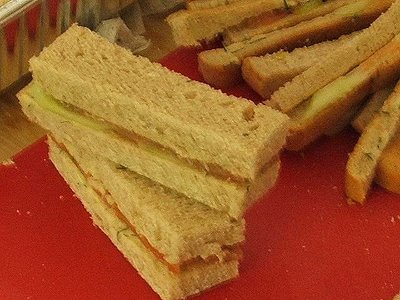
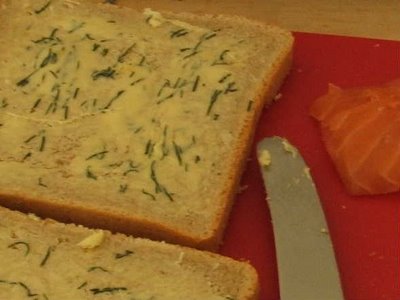 I took a picture of the dill and lemon butter I made to spread on the bread, because I figured you wouldn't see it all that well in a photo of the completed sandwich, and it really added something extra to the taste.
I took a picture of the dill and lemon butter I made to spread on the bread, because I figured you wouldn't see it all that well in a photo of the completed sandwich, and it really added something extra to the taste. 